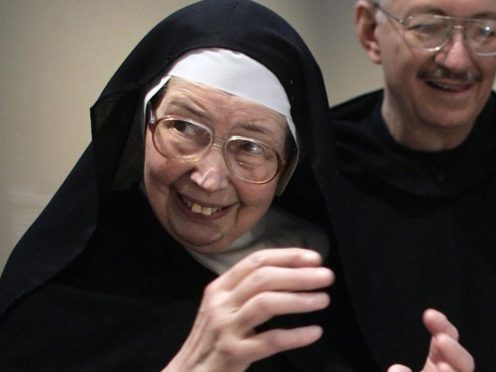Sister Wendy Beckett, the Roman Catholic nun who became an unlikely television star in later life, has died aged 88.
Sister Wendy found unexpected fame in the 1990s presenting a series of popular art programmes for the BBC.
According to her publicist, Sister Wendy died from “a combination of old age and health problems” on Boxing Day at a care home close to the Carmelite Monastery in Quidenham, Norfolk, where she had lived.
Her credits include Sister Wendy’s Odyssey (1992) and Sister Wendy’s Grand Tour (1994).
Jonty Claypole, the BBC’s director of arts, said: “Sister Wendy had a unique presentation style, a deep knowledge of and passion for the arts.
“She was a hugely popular BBC presenter and will be fondly remembered by us all. We’re thinking of her loved ones at this time.”
Xinran Xue, a close friend, said: “It is very sad news. Many people see her as a religious person and she was far more than that.
“It’s a huge loss for the art world. She was a brilliant art critic.”
Sister Wendy was born in South Africa in 1930 and raised in Edinburgh where her father studied medicine.
At 16 she joined a convent and in 1950 was awarded a Congratulatory First Class degree in English literature from Oxford University. She later taught in cities including Cape Town and Liverpool.
Sister Wendy Beckett on experiencing a Mark #Rothko painting – "Something does begin to happen… you are taken out of yourself and into something greater, something #transcendent, something #majestic."https://t.co/90JmR0fN3q pic.twitter.com/V5QhL1hUo9
— Rothko Chapel (@rothkochapel) December 28, 2017
She began studying fine art in the 1980s and wrote a book on the subject to raise money for her convent.
Contemporary Women Artists, published in 1988, was followed by more books.
She lived a hermit-like existence in a caravan in Norfolk until 1991 when the BBC commissioned her to present a television documentary on the National Gallery in London.
Sister Wendy became well-loved for her unique presenting style. She would stand in front of paintings in galleries around the world and discuss, without autocue, the work in detail.
